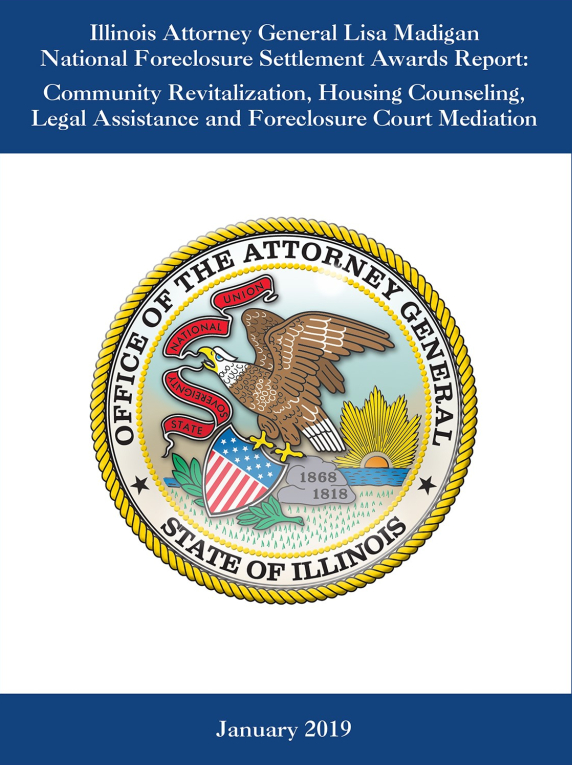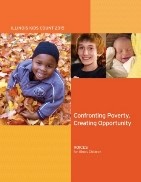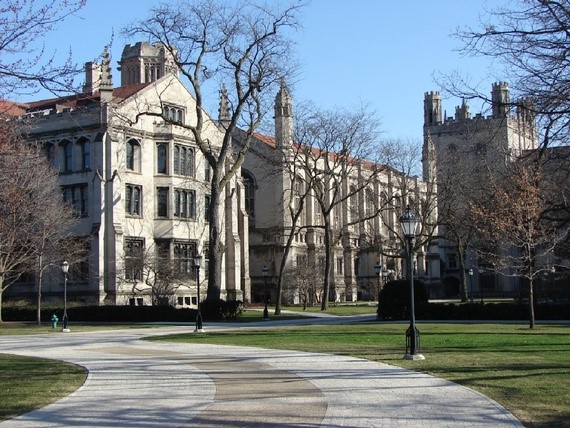
Write Ups
CAPABLE Project
BRicK Partners is excited to partner with the North West Housing Partnership, Northwest Suburban Housing Collaborative , and the Metropolitan Mayors Caucus on the CAPABLE project. CAPABLE is a pilot program that aims to help seniors be able to live independently in their home. This innovative program, based on the CAPABLE model developed at Johns Hopkins University, combines the services of an occupational therapist, a nurse, and a handyman to identify and resolve barriers to remaining in the home. This local effort, funded by the Retirement Research Foundation, Chicago Community Trust, Enterprise Community Partners, and Age Options, provides services to individuals over 65 years of age and living in Arlington Heights, Bellwood, Berwyn, Buffalo Grove, Cicero, Des Plaines, Maywood, Mount Prospect, Palatine, Rolling Meadows, and all areas in Wheeling and Palatine Townships. For more information, please review the CAPABLE brochure.
New essays in the What Works series support mixed-income housing

The What Works series on mixed-income housing just released three new essays, including one about increasing support for mixed-income housing co-authored by BRicK’s Robin Synderman and former HUD Region V Administrator Antonio R. Riley, now of Stewart Riley Consulting, LLC. Titled “Embracing Odd Bedfellows in Odd Times: How to Sustain Financial and Political Support for Mixed-Income Communities,” Snyderman and Riley focus on how the Chicago-area Regional Housing Initiative (RHI) is a promising strategy for both mixed-income housing and housing mobility. With some further support and regulatory relief from HUD, their “Odd Bedfellows” essay points to the replicability and scalability of this tactic to increase the supply of rental housing in areas near jobs, good schools, and transit access. The three latest pieces of the What Works series explore the role and importance of state and local governments and stakeholders in implementing proven mixed-income policies.
Remediating the Effects of the Foreclosure Crisis with the Office of the Illinois Attorney General

At the end of her term as Illinois Attorney General in January 2019, Lisa Madigan released a report on the nearly completed Community Revitalization and Housing Counseling initiative that sprang out of the 2012 National Foreclosure Settlement. BRicK’s Karen Muchin and Robin Snyderman helped the Attorney General’s office to design and monitor this program, which awarded $70 million to 53 organizations and teams, redeveloping or stabilizing more than 3,200 homes, providing more than 50,000 households with housing counseling and other tools and resources, and achieving noteworthy innovations.
For an executive summary and detailed information about awardees, click here.
For the full report, click here.
For information about the April 5 forum discussing the implications of this report, visit the Happenings page.
Background
In 2012, the federal government and 49 State Attorneys General reached a $25 billion settlement with five of the nation’s largest banks to address mortgage loan servicing and foreclosure abuses. Under the settlement, the State of Illinois received $2 billion in direct assistance to homeowners for loss of homes and loan modifications. The state also received $100 million in additional funding, which then-Attorney General Lisa Madigan dedicated to supporting efforts to rebuild communities that were hardest hit by the foreclosure crisis. She dedicated $30 million of that remediation funding to Legal Assistance and Foreclosure Mediation programs. To further address the causes and effects of the foreclosure crisis, her office contracted with Karen Muchin and Robin Snyderman of BRicK Partners to help design and monitor the $70 million Community Revitalization and Housing Counseling Program.
With the support and engagement of an Advisory Council composed of public and private housing experts, the team released an RFP/Q that generated over 136 applications totaling $507 million in requested funds. In July 2013, following an extensive review process, Attorney General Madigan announced that 53 awardees had been selected to receive the $70 million set aside for this program. The awards, focusing on areas of the state that showed significant need based on foreclosure and vacant housing data, were distributed in the following categories:
- Community Revitalization (29 awards totaling $57,565,536)
- Housing Counseling (11 awards totaling $6,267,000)
- Experts and Technical Assistance Providers (13 awards totaling $6,184,323)
Together with Chris Rintz of New England Homes LLC and key leaders in the Office of the Attorney General, Karen and Robin monitored the program, including all of the awardees as they worked to reach and, in many cases, exceed their initial goals. While several awardees are still completing their work plans, through fall 2018 almost 5,000 foreclosures have been avoided, more than 3,200 homes have already been stabilized, and approximately 54,000 households have received housing counseling or financial literacy services. These outcome numbers will increase by the end of the program, and they represent positive impacts on a diverse range of beneficiaries including urban, suburban and rural homeowners, homebuyers, renters, families and special need populations. In addition, the awards supported many exciting initiatives and achievements, such as the genesis of land banks and other innovative revitalization and financing programs, the creation of cross-jurisdictional partnerships, and the building of capacity in areas across the state.
Advancing Regional Solutions
BRicK has been pleased to support the Brookings Institution in convening a Community of Practice on Regional Housing Solutions, bringing together a diverse array of partners from the Baltimore, Chicago, Kansas City, and Minneapolis-Saint Paul regions to share best practices, troubleshoot common challenges, and develop policy solutions that increase access housing in priority opportunity and reinvestment areas.
This post, co-authored by BRicK Partner's Robin Snyderman on October 23, 2017, is the first in a series that will highlight innovative strategies and tools designed to help increase and diversify the supply of quality housing in the four Community of Practice regions. Businesses, families, and communities succeed when children can attend good schools and parents can enjoy an easy commute to work. Yet neighborhoods with that kind of access to opportunity are typically unaffordable to local workers and others with limited means. Many local and regional leaders are developing responses to this challenge, and the Community of Practice blog posts will showcase some of these initiatives.
Following on the initial blog entry noted above,BRicK Partner’s Robin Snyderman coauthored another post for the Community of Practice on Regional Housing Solutions in November 2017. The November Community of Practice gathering focused on building community acceptance for affordable housing, with a special emphasis on engaging the private sector. Following that meeting, one of the Chicago participants, King Harris, shared this blog post with some ideas for how to reach out to employers.

In "Paving the way for more affordable housing: Expanding the Moving to Work (MTW) program," the authors contend that “The possibilities for innovation offered through MTW status could multiply across regions and individual agencies and, most importantly, improve the lives and choices of the families who could best benefit from a regional MTW umbrella.” Robin and her coauthor, Greg Russ, Executive Director and CEO of the Minneapolis Public Housing Authority, explore the possibility that more PHAs could attain the flexibility of MTW status.
Making the move to opportunity
On October 13, 2016 BRicK Partner’s Robin Snyderman co-authored this blog with the Metropolitan Planning Council’s Marisa Novara about the findings of a recent RAND Corporation study related to a 2-year pilot which examined what incentives increase the demand for the existing supply of rental housing in opportunity areas among households using tenant-based subsidies.
The pilot expanded on the ongoing work of the Regional Housing Initiative, which continues to focus on utilizing the same resources as operating subsidies to increase that supply.
On one hand, pilot participants who received mobility counseling and financial assistance indeed moved to areas with even lower poverty and higher incomes than those who didn’t seek or receive such supports. In other words, for those who were ready to make an opportunity move, counseling did help them get to more economically prosperous options.
On the other hand, the study’s main finding was that the availability of financial assistance and housing counseling alone was not incentive enough to pursue such an opportunity move.
Regional public housing authorities continue to explore their next collaboration related to this tenant-based mobility along side Chicago Metropolitan Agency for Planning, BRicK and other partners on the Regional Housing Initiative, which focuses on increasing and diversifying the supply of rental housing options in priority areas region-wide.
Regional mobility and civil rights
On May 5, 2016, the Brookings Institution posted an essay written by BRicK Partners' Robin Snyderman on its "The Avenue" blog. The essay, entitled "Chicago’s Regional Housing Initiative promotes regional mobility," describes the Regional Housing Initiative as one scalable way to address segregation in American cities and to "work-around" national polices that contribute inadvertently to regional inequities.
Employer-assisted housing a win-win scenario
"When Employers Help with Housing, Winners Emerge," an article posted on Urban Land Institute Hawaii's website on March 6, 2015, discusses the challenges faced by employers in high-cost areas. BRicK Partners' Robin Snyderman is quoted regarding the benefits to both employees and employers of employer-assisted housing programs.
Barriers and incentives for employer-assisted housing
"More Companies May Start Helping Employees Buy Homes," an article posted in Bloomberg Business from December 18, 2015, in response to the news that Facebook would begin offering incentives for employees to move within ten miles of its Menlo Park, California, headquarters, discussed the barriers and incentives for employers to invest in worker housing. BRicK Partners' Robin Snyderman is quoted regarding the role of anchor institutions that commit to community development in disinvested neighborhoods by incentivizing renovations and purchases in very specific areas.
Renewed interest in Employer-Assisted Housing in a challenging housing market
BRicK Partners and two of its innovating clients were referenced in an article posted in Bloomberg BNA Workforce Strategies from August 2015, “Employee Benefits: Employer-Assisted Housing Programs,” that discusses renewed employer interest in workforce housing solutions in the current housing market.
Regional Housing Initiative Pilot final report to HUD published
The final report on the RHI pilot in the Chicago area has been completed and submitted to HUD by Metropolitan Planning Council and BRicK Partners. Click here to download the report.
Kids and Suburban Poverty
BRicK Partners' Robin Snyderman wrote an essay on suburban poverty and the challenges of both public perception and public policy for Voices for Illinois Children's Illinois Kids Count 2015 report. Click here to download the report.
Employer-Assisted Housing a win-win for everyone
An article posted on the Urban Land Institute's blog, How Housing Matters from February 24, 2015, “When Employers Help with Housing, Winners Emerge,” discussed a number of employer-assisted housing efforts across the country, from Under Armour to T. Rowe Price, and specifically highlighted workforce housing programs in anchor institutions such as Johns Hopkins University in Baltimore and Loyola University in Chicago. The article quoted BRicK Partners’ Robin Snyderman on the benefits of these programs for employers, employees and the surrounding community.
Employer-Assisted Housing programs inspire new legislation
An article posted in the Bloomberg BNA Human Resources Report from February 9, 2015, “Employer-Assisted Housing Programs Offer Stable Workforce, Needed Aid for Employees,” discussed a number of employer-assisted housing efforts across the country, from Stanford University to government agencies in the District of Columbia, and highlighted new workforce housing incentive legislation introduced in the U.S. House of Representatives. The article quoted BRicK Partners’ Robin Snyderman on the bottom line benefits of these programs for employers.

Promoting Diversity, Inclusion and Healthy Communities via Regional Public Housing Coordination
An article posted in The Atlantic on February 2, 2014, “Is Ending Segregation the Key to Ending Poverty?” provides an extensive history and analysis of legal efforts and federal programs, beginning with Chicago’s historic Gautreaux vs. Chicago Housing Authority desegregation law suit, that have tried to improve the lives of people living in concentrated poverty. Included in the article is the Chicago Region Housing Choice Initiative (CRHCI), the unique partnership that BRicK Partners has been assisting among nine of the Chicago region’s public housing authorities, the Metropolitan Planning Council, Housing Choice Partners, the Illinois Housing Development Authority and a host of other stakeholders. The article features the original litigator of Gautreaux, Alex Polikoff, and references an evaluation of mobility efforts in Baltimore by Johns Hopkins University's Stefanie DeLuca. Both Mr. Polikoff and Ms. DeLuca have served on an advisory committee for CRHCI that has been chaired by Barbara Sard of the Center for Budget and Policy Priorities.
Universities and Employer-Assisted Housing
“Should Urban Universities Help Their Neighbors?” an article posted in The Atlantic on January 19, 2015, references BRicK Partners’ Robin Snyderman, spotlights the leadership of the University of Chicago, and the work that Robin and BRicK's Samantha DeKoven supported while at the Metropolitan Planning Council. BRicK Partners assists employers and public sector leaders in their common efforts to promote vibrant communities with appealing workforce housing choices near jobs and transit.

Anchors Lift All Boats: Eds & Meds Engaging with Communities
Civic engagement has become the norm at some of the nation’s leading hospitals and universities, yielding vibrant neighborhoods and thriving business corridors that attract patients, students, and residents alike. The synergy starts with the right strategy. Click here for the article, written by BRicK Partners' Beth Dever, Omar Blaik and George Smith of U3 Advisors, and George McCarthy of the Lincoln Institute of Land Policy, and published in the Winter 2015 issue of Land Lines,the quarterly magazine of the Lincoln Institute.
Confronting Suburban Poverty, One Year In
In celebration of the one-year anniversary of the publication of Confronting Suburban Poverty in America, the Brookings Institution began publishing a series of practitioner briefs and case studies to provide a toolkit for practitioners across the country. Click here for the brief, written by BRicK Partners' Robin Snyderman and Beth Dever, exploring the achievements of the two suburban housing collaboratives in Chicago's south suburbs and west Cook County.
Employer-Assisted Housing
In response to a February 28, 2014, New York Times op-ed on employer-assisted housing, BRicK Partners' Samantha DeKoven discussed this benefit as a way to retain quality employees and promote corporate sustainability goals while helping employees have better quality of life and build personal wealth, particularly for anchor institutions such as universities and hospitals.
Click here to read her opinion editorial.
Interjurisdictional Collaboration
In December 2012, Metropolitan Planning Council (MPC), the Chicago Metropolitan Agency for Planning (CMAP), the Metropolitan Mayors Caucus (MMC), and BRicK Partners published a report detailing the cross-border planning and community development collaborations of three clusters of Cook County municipalities in response to unprecedented increasing poverty in the suburbs. Principal Robin Snyderman helped to launch the interjurisdictional initiative while at MPC, and continues to prioritize collaborative efforts at BRicK. The paper points to policy reforms and best practices needed to support the success of these pioneers, and to make it easier for this model to be replicated across metropolitan Chicago and other U.S. regions.
Click here to download a copy of the report.

Transit-Oriented Development
Bridge Housing, a California affordable housing developer, released "Smart Living, Smart Growth," to commemorate its 30th anniversary. The publication focuses on the people living in its award-winning transit-oriented developments. The diverse stories showcased in the book tell how residents' lives have been transformed by their living space. BRicK Partners' Robin Snyderman wrote an essay included in the publication.
Click here to download a PDF of the book.